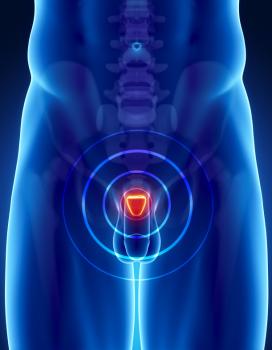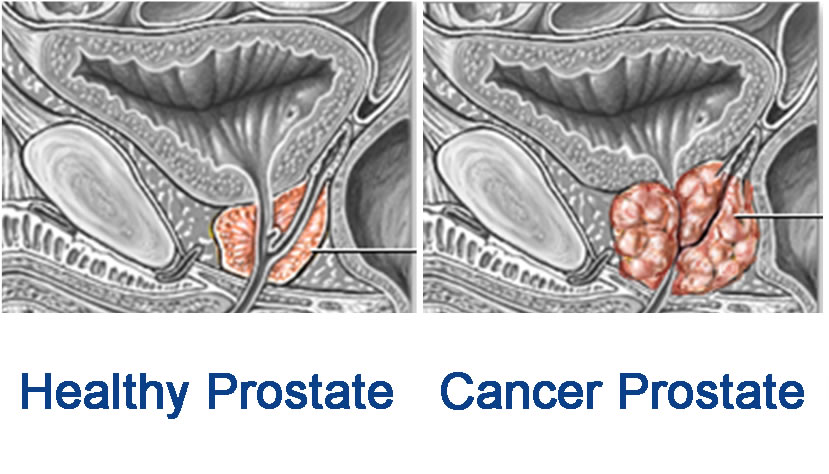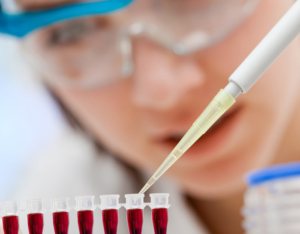Causes of Prostate Cancer
Prostate cancer is the most common cancer among men (after skin cancer), but it can often be treated successfully. If you have prostate cancer or are close to someone who does, knowing what to expect can help you cope. Here you can find out all about prostate cancer, including risk factors, symptoms, how it is found, and how it is treated.
Causes, Risk Factors, and Prevention
Learn about the risk factors for prostate cancer and what you might be able to do to help lower your risk.

What Causes Prostate Cancer?
Researchers do not know exactly what causes prostate cancer. But they have found some risk factors and are trying to learn just how these factors cause prostate cells to become cancer.
On a basic level, prostate cancer is caused by changes in the DNA of a normal prostate cell. DNA is the chemical in our cells that makes up our genes. Our genes control how our cells function. We usually look like our parents because they are the source of our DNA. But DNA affects more than just how we look.
Hormonal factors:
Several studies have suggested that hormonal factors may be important in the development of prostate cancer. These include:
- The dependence of androgen (male) hormones on most prostate cancers.
- The fact that prostate cancer does not appear in eunuchs.
- The fact that prostate cancer can be induced in rats by chronic administration of estrogens and androgens (female and male hormones).
Prostate cancer symptoms
Because of the proximity of the prostate gland in relation to the bladder and urethra, prostate cancer may be accompanied by a variety of urinary symptoms. Depending on the size and location, a tumor may press on and constrict the urethra, inhibiting the flow of urine. Some prostate cancer signs related to urination include:
- Burning or pain during urination
- Difficulty urinating, or trouble starting and stopping while urinating
- More frequent urges to urinate at night
- Loss of bladder control
- Decreased flow or velocity of urine stream
- Blood in urine (hematuria)
Other prostate cancer signs & symptoms
Prostate cancer may spread to nearby tissues or bones. If the cancer spreads to the spine, it may press on the spinal nerves. Other prostate cancer symptoms include:
- Blood in semen
- Difficulty getting an erection (erectile dysfunction)
- Painful ejaculation
- Swelling in legs or pelvic area
- Numbness or pain in the hips, legs or feet
- Bone pain that doesn’t go away, or leads to fractures



